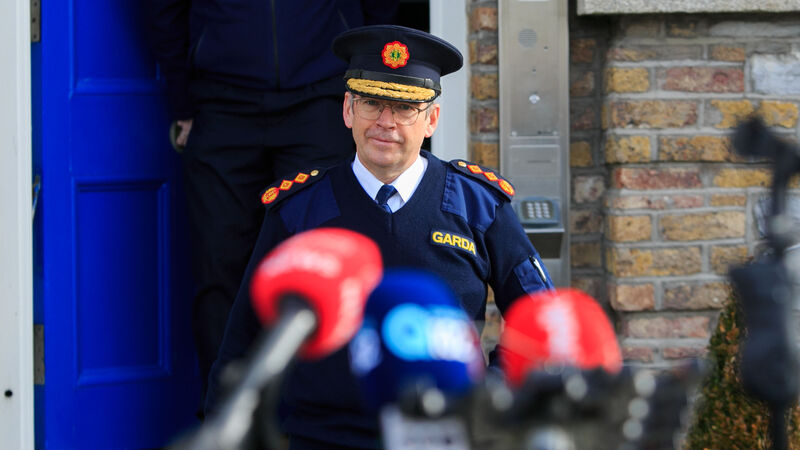Mick Clifford: Is it still a case of jobs for the boys – and girls – in An Garda Síochána?

Garda Commissioner Drew Harris: In 2019, at an event known as the commissioner’s conference, there were public expressions of concern about the promotions system from the ranks of superintendent to chief superintendent. Picture: Gareth Chaney/Collins
Jobs for the boys were supposed to be a thing of the past in An Garda Síochána.
It used to be that if you had a neighbour, family friend, relative, or sponsor in high places, your advancement was secured.













